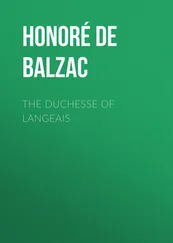Dino Dorothée - Memoirs of the Duchesse De Dino (Afterwards Duchesse de Talleyrand et de Sagan), 1841-1850
Здесь есть возможность читать онлайн «Dino Dorothée - Memoirs of the Duchesse De Dino (Afterwards Duchesse de Talleyrand et de Sagan), 1841-1850» — ознакомительный отрывок электронной книги совершенно бесплатно, а после прочтения отрывка купить полную версию. В некоторых случаях можно слушать аудио, скачать через торрент в формате fb2 и присутствует краткое содержание. Жанр: foreign_antique, foreign_prose, на английском языке. Описание произведения, (предисловие) а так же отзывы посетителей доступны на портале библиотеки ЛибКат.
- Название:Memoirs of the Duchesse De Dino (Afterwards Duchesse de Talleyrand et de Sagan), 1841-1850
- Автор:
- Жанр:
- Год:неизвестен
- ISBN:нет данных
- Рейтинг книги:4 / 5. Голосов: 1
-
Избранное:Добавить в избранное
- Отзывы:
-
Ваша оценка:
- 80
- 1
- 2
- 3
- 4
- 5
Memoirs of the Duchesse De Dino (Afterwards Duchesse de Talleyrand et de Sagan), 1841-1850: краткое содержание, описание и аннотация
Предлагаем к чтению аннотацию, описание, краткое содержание или предисловие (зависит от того, что написал сам автор книги «Memoirs of the Duchesse De Dino (Afterwards Duchesse de Talleyrand et de Sagan), 1841-1850»). Если вы не нашли необходимую информацию о книге — напишите в комментариях, мы постараемся отыскать её.
Memoirs of the Duchesse De Dino (Afterwards Duchesse de Talleyrand et de Sagan), 1841-1850 — читать онлайн ознакомительный отрывок
Ниже представлен текст книги, разбитый по страницам. Система сохранения места последней прочитанной страницы, позволяет с удобством читать онлайн бесплатно книгу «Memoirs of the Duchesse De Dino (Afterwards Duchesse de Talleyrand et de Sagan), 1841-1850», без необходимости каждый раз заново искать на чём Вы остановились. Поставьте закладку, и сможете в любой момент перейти на страницу, на которой закончили чтение.
Интервал:
Закладка:
Paris, September 26, 1841. – Yesterday I went to Champlâtreux with Baron Humboldt. The weather was very unpleasant and spoilt our excursion. I had known Champlâtreux long before: time has in no way destroyed its beauty; on the contrary, for M. Molé has laid it out magnificently. His improvements are excellent but should be continued and especially the little panes of glass should be removed from the windows in the large rooms, as they spoil the general effect. On the whole it is a noble mansion, not a feudal, but a parliamentary building, as befits a descendant of Mathieu Molé, of whom memorials are everywhere to be found and very properly so. Particularly excellent is the portrait of the grandmother, the daughter of Samuel Bernard, in the large room; with her dowry M. Molé's grandfather built the present residence. The park is beautiful and finely laid out, while M. and Madame Molé are most kind and pleasant hosts.
The fortifications are in their most advanced state from Paris to Saint-Denis, but for the moment the state of affairs is simply frightful and looks like chaos.
Yesterday's event, for every day brings an event in this country, was the truly scandalous acquittal of the National ; 42 42 The National had published a correspondence concerning the disturbances at Clermont, full of falsehoods and invectives against the monarchy, and was accused of attacking the King's majesty and brought to trial. On September 24, 1841, a verdict of "Not Guilty" was passed by the jury of the Seine.
it must be admitted that we cut a very poor figure here.
Paris, October 1, 1841. – Yesterday I saw M. Guizot at my house. I was anxious to say a word to him on behalf of Charles de Talleyrand who, I hope, will soon join M. de Sainte-Aulaire at London. M. Guizot told me that Lord Cowley would certainly be the ambassador at Paris and his appointment is desired here. Sir Robert Peel refused court appointments to Lord Wilton and the Duke of Beaufort, saying that people with more depth of character and less doubtful morality were required about the person of a young Queen. The Duke of Beaufort has refused the embassy of St. Petersburg, and the Marquis of Londonderry the embassy of Vienna. Both wished for Paris and were greatly exasperated by their failure to secure it. They are now forming the nucleus of a small opposition party.
M. Guizot gives the following explanation of the two somewhat unusual nominations of M. de Flahaut as ambassador to Vienna and of M. de Salvandy to Madrid: he says that he thought it advisable to deprive M. Thiers of the one and M. Molé of the other. An admirable explanation and of course entirely in the interests of the country!
Courtalin, October 3, 1841. – I arrived here yesterday evening after dining and sleeping with Madame Mollien. I am now in the midst of the Montmorency family, many of whom are here.
Rochecotte, October 7, 1841. – Once more I am back at my little Palazzo where I arrived in the morning to my great delight and have been most interested to see the arrangements and improvements that have taken place during my absence.
Rochecotte, October 12, 1841. – I have spent the last few days in arranging my new library and putting the books in order. It is a tiring business but has absorbed me greatly. My son and daughter-in-law Dino have arrived and also my niece Fanny and her governess, who spent a few days at Paris after my departure.
Yesterday I had a call from the Lady Superior of the Daughters of the Cross from Chinon. She is the one who received the communion last spring when I went to see her. She asserts that she began to get better from the moment of my visit. She brought me some rosaries and wished to pray in my chapel. She also brought me my lithographed portrait from a room where she found it and persuaded me without much trouble to add an orphan's place to the establishment which she administers. I have thus secured the right of sending an orphan from the village of Saint Patrice of which Rochecotte is a part, to receive a Christian education from these excellent women, and I shall make my choice to-day.
Rochecotte, October 14, 1841. – The changed situation in Spain has occupied all minds at Paris, for war has really broken out again. It is a dreadful business and will end in the massacre of the innocent Isabella. 43 43 On October 7, 1841, at eight o'clock in the evening, Generals Leon and Concho took advantage of the fact that a regiment, formerly commanded by the latter, had arrived at Madrid. As the regiment was devoted to him the two Generals proposed to make a sudden attempt to carry off the Queen and the Infanta. They went to the palace at the head of a squadron of the Royal Guard, and while the regiment surrounded the palace they mounted to the Queen's apartments; these were fortunately guarded by halberdiers who offered a vigorous resistance, received them with rifle-shots, and drove them back several times. Espartero crushed this military plot, and had General Diego Leon shot on October 15.
Queen Christina is by no means anxious to leave Paris, where she finds life pleasant. She is terrified by the idea of returning to Spain of which she speaks with disgust and scorn. All who know her regard her as clever, kind and courageous in time of need, but naturally idle, pleasure-loving and devoting herself to amusement as far as she can, as she is obliged to despair of ever playing a part in politics again. She is very fond of her children by Muñoz and she has little affection for her royal daughters.
Rochecotte, October 24, 1841. – Yesterday I had some letters containing news. Madame de Lieven writes: "England is obviously disturbed about the news from America and speculators in every country are greatly alarmed. It is difficult to think that war will not be the consequence of the complication in the case of Grogau 44 44 On September 20, 1841, Colonel James W. Grogau, a citizen of the United States, was surprised during the night in the house of a certain Mr. Brown within the frontiers of his own country, by brigands in English uniform, who carried him away as a prisoner to Montreal in Canada. Mr. Richard Jackson, the Governor of Canada, immediately liberated him, and punished an English officer, Mr. Jackson, of Colonel Dyer's regiment, who had taken part in this attempt.
added to that of MacLoed. The newspapers are full of Spain; attempts at insurrection are everywhere a failure. Espartero does his duty in punishing the guilty, but it is piteous to see the most cultured and brilliant figures in Spain falling. The death of Diego Leon, the idol of the army and of Madrid, made Queen Christina shed floods of tears. I do not know how she will escape the consequence of Olozaga's publications; she disavows them but no one believes her. Demands are issued that France should send Christina back; the government naturally refuses and will continue to offer hospitality to the niece of the French Queen. I do not think that Salvandy will start immediately for his post in Madrid: Sainte-Aulaire has secured the favour of Aberdeen; Flahaut is starting for Vienna shortly."
The Duchesse d'Albuféra tells me that the Duchesse de Nemours is with child, to the great delight of the Queen and that the household at Compiègne which has been so long disturbed seems to be in perfect harmony.
Rochecotte, October 25, 1841. – Yesterday I had a letter from M. de Salvandy, of which the following is an extract; "It is not impossible that I may receive orders to start within the next twelve days. You will have seen what has happened at Madrid: the insurrection with its sudden outbreak and its sudden ending. We have undergone all kinds of deceptions here and have proclaimed them and published them in our public and private deeds, in our relations with the Spanish Government, with its Minister and with every one. The Minister has demanded that Queen Christina should be sent back and has been justly and vigorously refused, but so vigorously that what the Madrid authorities will say or do no one can conjecture. Hitherto relations have not been entirely broken off; nothing will be known for another ten days. At present we are much disconcerted by our foolish actions and are trying to avoid the consequences as gently as possible. At the first favourable moment my departure will be urged. In this undignified position mine is the only bearable situation, because I have shared none of these delusions; I have contradicted them, as every one knows and Spain is thankful to me. Spain asks that I should start. I have pointed out two or three matters upon which I should like satisfaction; they will be granted and we shall thus be able to put a better face upon the matter, but I am astounded at this method of conducting the business of the world."
Читать дальшеИнтервал:
Закладка:
Похожие книги на «Memoirs of the Duchesse De Dino (Afterwards Duchesse de Talleyrand et de Sagan), 1841-1850»
Представляем Вашему вниманию похожие книги на «Memoirs of the Duchesse De Dino (Afterwards Duchesse de Talleyrand et de Sagan), 1841-1850» списком для выбора. Мы отобрали схожую по названию и смыслу литературу в надежде предоставить читателям больше вариантов отыскать новые, интересные, ещё непрочитанные произведения.
Обсуждение, отзывы о книге «Memoirs of the Duchesse De Dino (Afterwards Duchesse de Talleyrand et de Sagan), 1841-1850» и просто собственные мнения читателей. Оставьте ваши комментарии, напишите, что Вы думаете о произведении, его смысле или главных героях. Укажите что конкретно понравилось, а что нет, и почему Вы так считаете.












